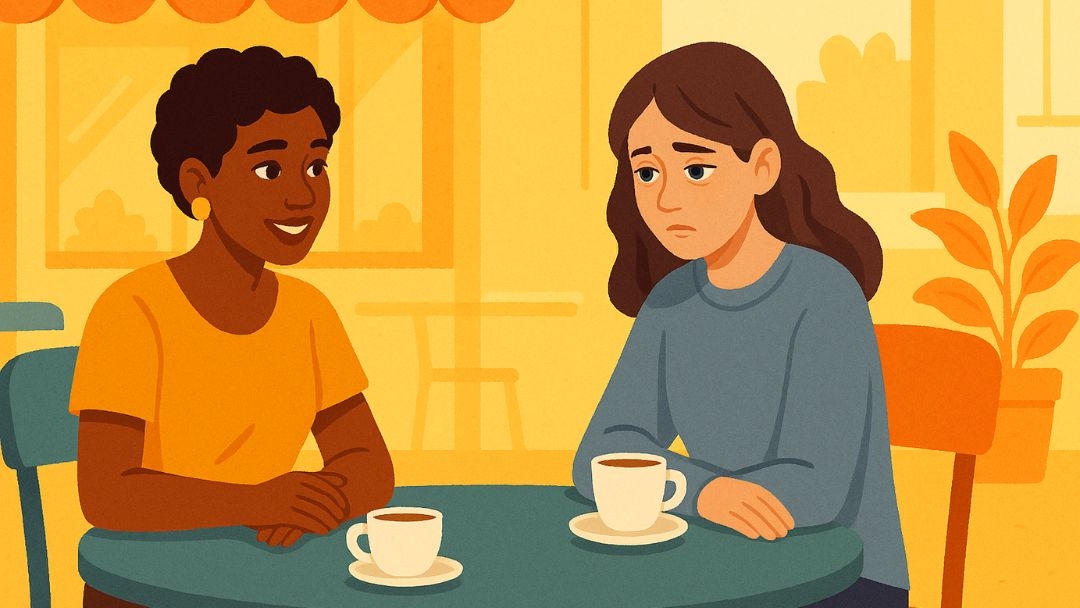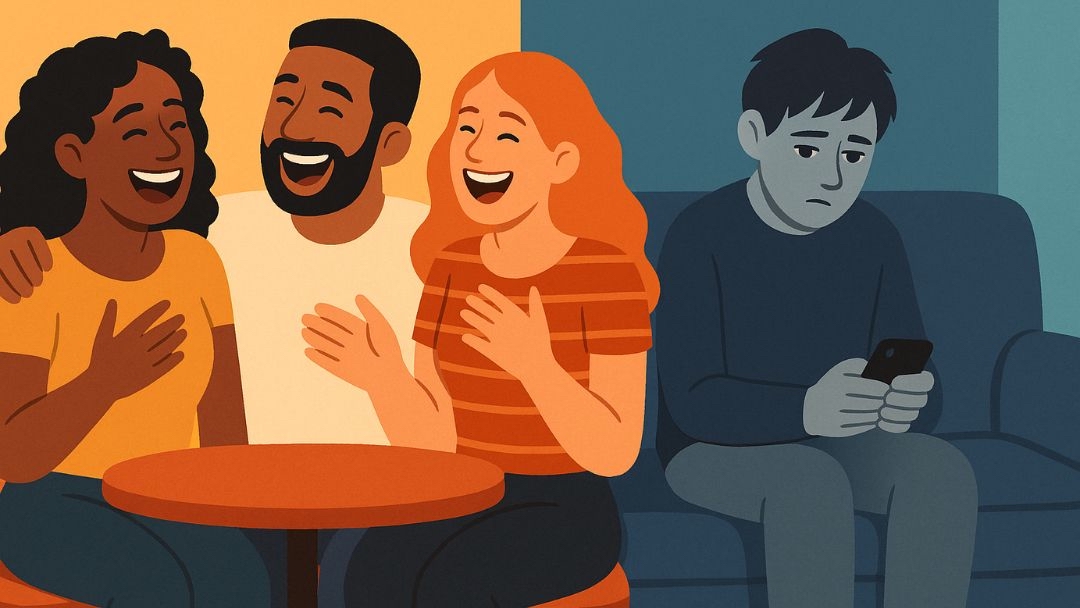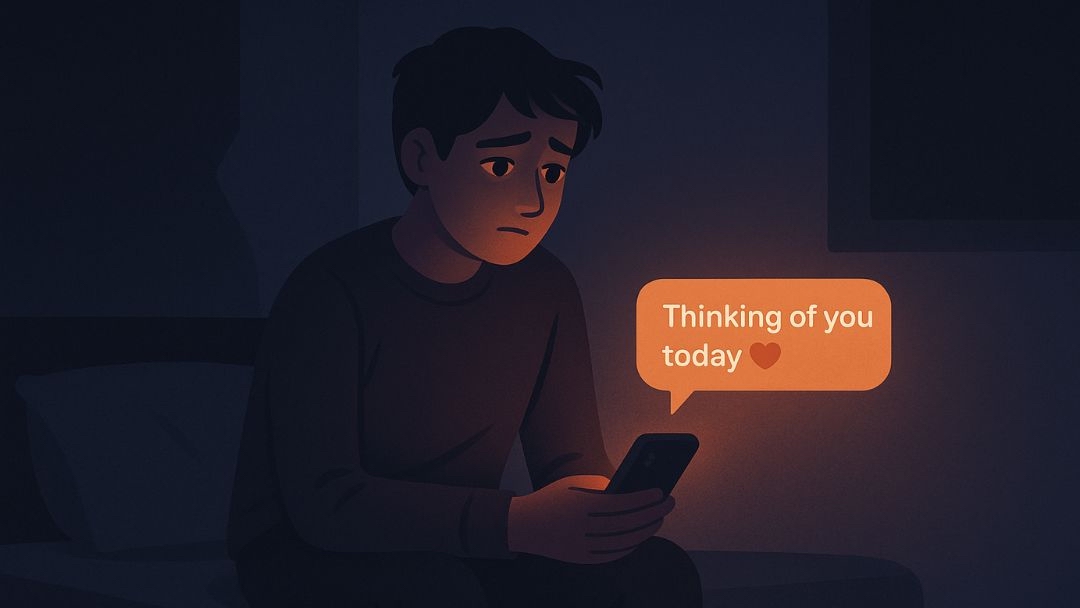How To Help Someone From Depression: Simple Yet Effective Ways You Can Help a Loved One With Depression
Watching someone you love battle depression can be scary. Worst still, you may not know how to help them overcome it and live their best lives. However, seemingly little things you do could make a big difference in your loved one’s life. Let's look at how to help someone with depression.


Back
7 mins read
Recently, I received some sad news that a close friend from college had committed suicide after a long battle with depression. While I had noticed her glaring absence from our annual reunion or her loud silence from our college WhatsApp group, I did not reach out to find out what could be wrong. I still have so many questions.
Why did I ignore the red flags? Were there early warning signs? Could a call or text to my depressed friend have helped?
How could this ever-bubbly refined lady have major depression? She had taken her own life, but I had never heard of any prior suicide attempts.
Even if you don’t know someone who committed suicide, you were likely shocked by the tragic deaths of famous people such as Stephen "tWitch" Boss, Robin Williams, Anthony Bourdain, Naomi Judd, and Kurt Cobain. To us outsiders, these people seemed to have it all. What could cause them to take such drastic measures?
Truth is, we are living in a world where depression is hiding in plain sight.
As we speak, you could be feeling helpless and fearful as you watch your loved one spiral deeper into depression. Worse still, you could suspect a loved one is depressed, but you don't know how to start the conversation.
After the incident above, I have purposed to learn more about mental health. Hopefully, the following guide can shine some light on mental illness and how you can help someone from experiencing depression.
But first, let’s take a moment to define how depression affects us.
Related: 25+ Ways to Offer Comfort and Help Someone Who’s Hurting
Understanding Depression

We have extensive articles about depression you can refer to, but here’s a quick definition.
Depression is a serious mental health condition that negatively affects one’s ability to think, feel, and act. It can affect people of all ages, snatching their ability to function and enjoy everyday life.
Chronic depression leaves a trail of pain, not only for the person suffering from it but also for the people around them. According to the World Health Organization (WHO), about 5% of the global adult population suffers from clinical depression ranging from mild to moderate to severe cases.
Additionally, you'll come across varying types of depression, such as situational depression, postpartum depression, and relapsing depression, among others. You'll also find that in some cases, someone might be anxious, stressed, or suffering from burnout, which are also mental health issues often connected with depression.
Do you suspect depression-like symptoms in someone? Encourage them to take this online depression test.
How Can You Help a Depressed Person?

You may have noticed that a loved one has withdrawn or changed their behavior towards life. Depending on their personality type, they may speak out about what's happening to them. Or, in contrast, they may withdraw into a cocoon of silence.
Let's look at some tips that may help you reach out and hopefully assist someone in recovering from depression.
Learn the Signs and Symptoms of Depression
While depression is a common mental health disorder, it may manifest similarly as anxiety, stress, or burnout. That's why it's essential to understand the signs and symptoms of depression and how they manifest in different people.
Some of the common warning signs and symptoms that a depressed person will display include:
- Feelings of sadness, emptiness, and hopelessness
- Loss of interest in daily routines or activities they enjoyed, including pulling away from social contact
- Increased or reduced appetite or changes in sleep patterns
- Irritability or angry outbursts even over small matters
- Loss of energy or feeling physically drained all the time
- Difficulty thinking, concentrating, remembering, or making decisions
- Unexplained body aches and pains
- Abusing alcohol, drugs, and prescription pills to numb the feelings
- Frequent talk about suicide or death
Understanding the signs and symptoms helps you to find the courage to gently start a candid conversation about depression with your loved one.
Embrace compassionate language they can listen to and respond to even in their depressive state. Fill your conversations with hope and encouragement and offer to listen without judgment. Sometimes, it may take several attempts for them to reveal what's really going on.
Give them time, and don't give up. Be consistent with checking up on them without being too nagging or pushy. Remember that patience and gentleness will create a loving environment for them to open up.
Encourage Them to Seek Help
This step is by no means easy. Often, people with depression are not ready to admit they are depressed. Maybe it's because of the stigma associated with mental health issues, especially in adults, where they are often made to make depressed people feel like they've lost in life. At other times, they may not be aware of the symptoms and tend to assume that their feelings are normal.
There's also the shame of not getting over the feelings using their willpower, or the disparaging remarks that they have encountered in the recent past make them apprehensive of any intervention you suggest. Further, the condition amplifies negative and suicidal thoughts, and with time they tend to believe that the situation is hopeless.
However, please reaffirm to them that depression is treatable and that they can get better with the right help.
Here’s a process you can follow to encourage them to get help:
Talk to Them About Your Concerns
Let them know what you've seen and why you're concerned. Explain to them that depression is a medical condition, not a sign of a personal flaw or weakness and that it can get better with proper treatment.
You may want to show them this article, How Do I Know If I Have Depression?
Suggest an Online Depression Test for Validation
To eliminate doubt and hesitation, offer to help them take a low-cost online depression test that’s anonymous and can be completed in the privacy of their own home. The results can provide the information you need to convince them to get help. Additionally, an online test gives you access to articles and helpful resources in your local area, including treatment centers and local mental health professionals you can approach.
Recommend Professional Help
Based on the information you have, suggest a visit to a mental health professional like a psychologist or counselor. Offer to make the necessary calls to set up an appointment. For a depressed person, small tasks like researching options or making a call to set up therapy appointments can often feel overwhelming and like a mammoth task. Helping them with these things can go a long way toward that first step.
But what can you do if they refuse to seek help? Here are simple things that can make all the difference.
- Suggest a routine checkup with a physician. If a physician rules out other medical illnesses and diagnoses your loved one with depression, with the recommendation of the health care professional, they may agree to visit a mental health provider.
- Give them time to consider the idea. Appearing forceful may push them in the opposite direction. Give them the power to choose.
- Address the concerns. In a candid and non-judgmental conversation, ask them what fears they have about getting help and work towards alleviating some of those fears.
- Lookout for worsening symptoms of depression in your friend or family member. Symptoms manifest differently for each individual, and watching them can help you to catch on before their depression gets worse. Never ignore the warning signs, especially if depression symptoms include suicidal thoughts.
If you observe more severe depression symptoms or emotional crisis —especially if your loved one expresses suicidal thoughts, is contemplating suicide, or has attempted suicide — don’t wait!
Get them help by contacting a mental health provider or encourage them to call the following suicide prevention hotlines.
- US Suicide & Crisis Lifeline: Call or text 988, or chat on the website
- International Association for Suicide Prevention: Find a Help Line
Support Your Loved One Through Treatment

Now that your loved one has agreed to treatment, offer them support and compassion throughout the process. Here are a few ways you can do that:
Encourage Them to Complete the Treatment
Offer to drive them to appointments and create reminders for taking medications. If the depressed person is closely related, attending family therapy sessions may also be helpful.
Check on Them Regularly
Make plans to check on them regularly and offer a safe space for your loved one to express their feelings. Refrain from giving advice or opinions and listen carefully without judgment. Such small actions can make a big difference in their recovery.
Offer Help
As your family member, friend, or co-worker recovers from the negative lethargic state, they may not have the energy to handle everyday tasks well. Offer to help with small tasks such as grocery shopping or household chores that they are comfortable delegating, and the responsibilities you can cover without taking on more than you can handle.
Encourage a Positive Outlook on Life
Suggest ways your loved one can engage in positive and mood-boosting activities. It can be as simple as going for walks as you talk, sporting activities, self-care habits like eating healthy meals and getting the right amount of sleep, or joining support groups. Help them find gratitude during the dark times.
If possible, engaging in a hobby or other activity with them is a great way to be there for a depressed loved one. Remember, though, that your friend's depression may make it difficult for them to enjoy even normal activities, so don't take it personally.
Fact: Did you know that physical activity has been clinically proven to reduce depression symptoms significantly?
You can also share these positive affirmations that could help improve their outlook on life. It may take time to get them to choose one activity, but with some habit stacking and gentle persistence, they’ll make progress.
Related: How Exercise Can Reduce Stress (and help alleviate depression)
Mind Your Well-Being
Caring for a loved one with depression is emotionally draining, and the increased risk of caregiver burnout, compassion fatigue, and reactional depression is real. Self-care, as you provide care, is essential.
It's important not to neglect your well-being even as you help someone with clinical depression. When you are in a good place physically and mentally, you can help your loved one through their mental health journey.
Here are some tips on how to stay healthy and take care of yourself as you help someone with depression.
- As much as possible, maintain a normal routine with your personal life.
- Speak up for yourself when they offend you or let you down.
- Set boundaries and clear limits on taking calls and helping your family member with tasks.
- Find support for yourself. Join a support group, talk to a counselor or a confidant.
- To avoid frustration, exercise patience and recognize that depression treatment and the recovery process take time.
Simple Things Can Make a Big Difference

Finding a way to support a loved one with depression is not easy. But when you seek information, including learning the signs and symptoms of your loved one's depression, you better understand how the condition affects them.
Helpful tools such as a depression test give you insight into the support and resources your loved one needs to admit they need to seek treatment. Remember, even the simplest things, like a smile or kind word, could help uplift someone's spirit and shine a light in a dark place.
And with a patient and compassionate person like you by their side, your loved one can win the battle against depression and flourish in life.


Return to Blog





